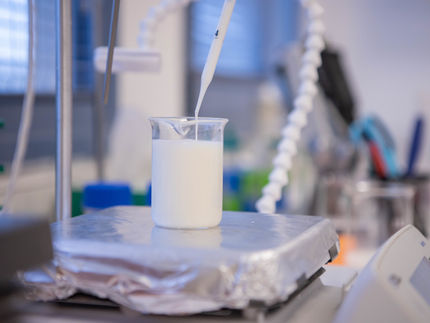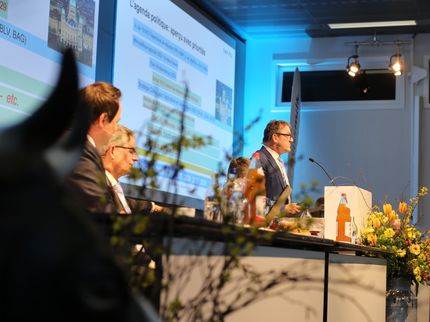Now it's about the veggie sausage
Veggie products: EU Parliament decides on ban on labelling
On Friday, the European Parliament will vote on a draft law that would ban the use of animal-sounding names for plant-based foods. The possibility for manufacturers to call their meat substitutes soya schnitzel or tofu burgers would be a thing of the past - but the project is viewed with scepticism within the EU Parliament.

Photo by Yasin Arıbuğa on Unsplash
The proposed legislation is part of a report on the European Union's Common Agricultural Reform (CAP), which Parliament is voting on this week. The MEPs vote on the position of the EU Parliament, which then enters into negotiations with the Council and Commission.
It is not certain that the draft law will make it into the final reform package on EU agricultural policy. Parliament's decision is expected around noon.
And according to the bill, it is not only the tofu sausage that will be affected: It also proposes stricter rules for dairy alternatives. Designations such as "almond milk" are already banned in the EU. The European Court of Justice ruled in 2017 that only products derived from the "normal udder secretion" of animals may be called milk. The same applies to the designations of milk derivatives as "cheese" or "butter". The draft law now proposes not to allow descriptive expressions such as "à la", "type" or "imitation".
Some MEPs criticised the discussion on the issue before the vote. "We consider the whole debate to be completely superfluous," FDP MEP Jan-Christoph Oetjen told the German Press Agency. "We are convinced that citizens can form their own opinion." After all, the consumer also knows that you cannot drink scouring milk, Oetjen said. He announced that the FDP would vote against the corresponding amendments.
Agricultural associations in particular had previously massively advertised the ban on meat designations for substitute products. The EU farmers' association (Copa-Cogeca) stated in a tweet that the approval of meat designations for plant-based alternatives would open Pandora's box. It spoke of damage to farmers and consumers, who would be confused by the unclear designations.
The German Farmers' Association (DBV) demanded "honest" product names for substitute products. At the beginning of October, DBV General Secretary Bernhard Krüsken called the choice of meat names for the plant-based alternatives a "strange form of free-riding". "Marketing that first brings the original into disrepute and then copies it in the designation is unfair," explained Krüsken.
It is not a matter of slowing down the veggie market, stressed Norbert Lins (CDU), chairman of the European Parliament's agricultural committee. He did, however, call for clarity in the designations. "We want to protect the designation "pure" meat products, while the substitute product for meat preparations should carry the "veggie label"."
Green European politician Martin Häusling did not see any risk of confusion for consumers at the refrigerated shelves. He did not believe that there could be confusion between veggie burgers and burgers made from meat, Häusling said. He rather fears that the EU Parliament is in danger of ending up with a "second cucumber regulation".
The notorious - and meanwhile repealed - regulation on the permitted curvature of cucumbers is often cited by critics as an example of over-regulation from Brussels.
In addition to the draft law, which provides for the prohibition of meat designations for plant products, a bill with a compromise is also up for vote. According to this, soya schnitzel could continue to be called schnitzel, but would have to be clearly labelled with the words "without meat".
In Germany, meat designations for plant products are currently possible. According to the German Food Book Commission, the prerequisite for this is that there is a similarity between the products. This can be given by various criteria such as the intended use, consistency or even mouthfeel./ari/DP/stk (dpa)
Note: This article has been translated using a computer system without human intervention. LUMITOS offers these automatic translations to present a wider range of current news. Since this article has been translated with automatic translation, it is possible that it contains errors in vocabulary, syntax or grammar. The original article in German can be found here.

































































